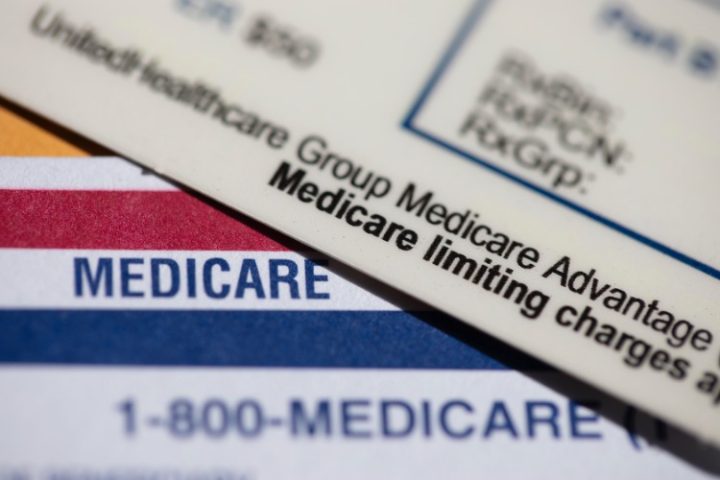 AP Images
AP Images
Senator Rand Paul (R-Ky.) has accused the Biden-Harris administration of exploiting a $5 billion Medicare fund to influence the election. The administration’s Medicare stabilization program, introduced in July 2024, ostensibly aims to lower premiums for seniors. The senator is questioning whether this is a strategic move to appeal to voters.
The program is part of a three-year initiative managed by the Centers for Medicare & Medicaid Services (CMS). It is designed to prevent sharp increases in Medicare premiums. However, Senator Paul has raised concerns that this might violate the Hatch Act, which prohibits the use of taxpayer dollars to influence election outcomes.
Paul’s Letter to DOJ
On Friday, Paul took to X to share a formal letter dated the same day. It was addressed to the chief of the public integrity section at the Department of Justice (DOJ). In it, Paul urged an investigation into the legality of the administration’s actions.
Paul wrote,
Kamala Harris cast the tie-breaking vote to pass the Inflation Reduction Act, which is now driving up seniors’ health care premiums. Americans deserve to know if Biden and Harris are now illegally handing taxpayer funds to insurance companies in order to hide those premium increases right as seniors head to vote.
According to the letter, the senator is “seeking additional information on the Biden-Harris Administration’s plan to spend over $5 billion in taxpayer-funded subsidies to insurers to offset Medicare premium increases before the November election.”
Paul’s concern centers on the timing of the initiative. He argues that it could be a politically motivated attempt to cover up rising Medicare premiums caused by the Inflation Reduction Act of 2022 (IRA). In his letter, Paul highlights that Medicare premiums surged by 21 percent in 2023 alone, leaving many seniors financially burdened. However, in the “non-election year, the Biden-Harris administration stayed silent and routinely ignored concerns about the costs associated with IRA provisions.”
Paul also questioned the legal basis for the “scheme.” He argued that the move to justify the subsidy “lacks any budgetary analysis or credible research goals.” Additionally, Paul pointed out that “several reports have cast doubt on the legality of this peculiar program.” He referenced that similar demonstration programs both the Government Accountability Office (GAO) and the Office of Management and Budget (OMB) denounced during previous administrations.
With premiums expected to rise again in 2024, Paul argued that the $5 billion subsidy could obscure the negative impacts of the Inflation Reduction Act (IRA). He suggested that the subsidy might serve to temporarily reduce premiums, creating favorable optics ahead of the election, rather than addressing long-term Medicare issues.
Even more serious is Paul’s suggestion that the administration’s actions may contravene federal law. Citing 18 U.S.C. § 595, part of the Hatch Act of 1939, the senator claimed that the Biden-Harris administration might be illegally interfering with the election.
Paul wrote,
It is hard to imagine a more decisive action the Biden-Harris Administration could take to influence the election than spending billions of taxpayer dollars to cover up the negative impacts of their own highly touted IRA.
The senator called for an immediate investigation by the DOJ. He requested the Senate Committee on Homeland Security & Governmental Affairs receive the findings by October 16, 2024. Paul’s letter also requested full transparency of communications and documentation related to the Medicare stabilization program.
The latest revelations coincide with a report alleging that the Biden administration is using taxpayer funds to send Medicare recipients emails praising Vice President Kamala Harris. These move raised concerns about the use of public funds for political purposes.
IRA and Healthcare Costs
The Biden administration has made its alleged efforts to reduce healthcare costs a central pitch of the presidential campaign.
A key focus of these efforts is the negotiation of lower prices for 10 high-cost prescription drugs covered by Medicare, with projected savings of $6 billion by 2026. Additionally, the administration has highlighted reductions in coinsurance rates for 54 Medicare Part B medications, starting in October 2024. The White House touts this initiative as a major win for seniors and individuals with disabilities.
However, the IRA has faced substantial criticism, particularly regarding its broader impact on inflation and healthcare costs. One of the main critiques revolves around the unintended consequences of the Act, such as rising Medicare premiums. As pointed out by Senator Paul, in 2023, Medicare premiums surged by 21 percent. Conservatives rightfully attributed this spike to the costs associated with implementing the IRA’s provisions.
In addition to immediate cost increases, opponents argue that the IRA could exacerbate inflation in the healthcare sector. Critics claim that by forcing drug companies to lower prices through government negotiations, the Act could disincentivize pharmaceutical innovation. They argue this could lead to fewer new treatments and advancements in medical care. The reduced revenue for drug companies might slow down research and development. As a result, it could ultimately limit the availability of future therapies.
Moreover, concerns arise over the Act’s overall cost to taxpayers. The Congressional Budget Office (CBO) estimated that the drug-price negotiation provisions will save Medicare about $100 billion over the next decade. However, critics argue that the subsidies and price-control mechanisms in the Act could offset these savings.
They warn that the IRA may lower drug prices only in the short term. However, it could create a long-term financial burden on the federal budget. This could lead to increased inflationary pressures and potential economic instability.
Government Waste
Amid ongoing scrutiny of the Biden administration’s approach to the use of Medicare funds, a recent report from Open the Books reveals that improper payments in Medicare and Medicaid are a major source of government waste. In 2023 alone, these two programs accounted for $101.5 billion in erroneous payments. These improper payments, which include overpayments, underpayments, and outright fraud, continue to burden the federal budget at a staggering rate.



